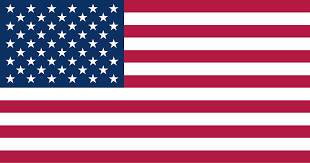
SHARIA BANKING
Sharia Banking is by definition the means by which corporations in the Muslim world, including banks and other lending institutions, raise capital according to Sharia, or Islamic law. It also refers to the types of investments that are permissible under this form of law.

Islamic finance serves as a foundational pillar in the Muslim world, ensuring that economic activities align with religious beliefs, strengthening communal bonds, and promoting equitable wealth distribution.
The primary objectives of Islamic finance are to achieve justice, eliminate exploitation, and ensure fairness for all participants in a transaction, fostering a socio-economic environment that upholds the broader ethical principles of Islam.
HOW DOES ISLAMIC FINANCE DIFFER FROM CONVENTIONAL FINANCE?
Differences Between Islamic and Conventional Finance
| Criteria | Islamic Finance | Conventional Finance |
|---|---|---|
| Basis of Operation | Operates based on Shariah law principles derived from the Quran and Sunnah. | Functions on capitalist principles, mainly profit-driven without religious guidelines. |
| Interest (Riba) | Prohibits charging or paying interest as it’s considered unjust. | Relies on interest as a primary source of profit for lending and banking activities. |
| Risk and Profit Sharing | Encourages risk and profit-sharing between parties. | Lenders and banks typically transfer all risks to borrowers, focusing solely on fixed returns. |
| Investment Ethics | Avoids Haram (forbidden) sectors like alcohol, pork, and gambling. Investments must have a tangible asset and avoid excessive uncertainty (Gharar). | Does not have religious restrictions on investments, focusing mainly on profitability. |
WHAT ARE THE MAIN PRINCIPLES GOVERNING SHARIA BANKING?
Principles Governing Islamic Finance
- Riba (Interest) Prohibition: Charging or paying interest is strictly forbidden in Islamic finance. Money, in itself, cannot be a source of profit.
- Gharar (Uncertainty) Avoidance: Excessive uncertainty or ambiguity in terms and conditions of a financial transaction is prohibited. All terms should be clear and unambiguous. Don’t make money with money without tangible assets.
- Asset-backed Financing: Every financial transaction must be backed by tangible assets or services. Purely speculative transactions are not allowed.
- Profit and Loss Sharing: Financial institutions are encouraged to engage in contracts that allow sharing of risks and profits rather than just transferring risks to the other party.
- Prohibition of Haram (Sinful) Activities: Investments in sectors or activities deemed haram, such as alcohol, pork, and gambling, are forbidden.
- Moral and Ethical Considerations: Beyond just compliance with technical requirements, all financial transactions should uphold high moral and ethical standards, ensuring fairness for all parties involved.
BENEFITS OF ISLAMIC FINANCE
Benefits of Islamic Finance
- Ethical and Transparent: Islamic finance promotes ethical investing and transparency in financial dealings, ensuring that all parties are well-informed and treated justly.
- Stability in Economic Cycles: Due to its tangible asset-backed nature and risk-sharing approach, Islamic finance can offer stability during volatile economic times.
- Socially Responsible: Prohibiting investments in harmful sectors ensures that funds are used in a manner that benefits society at large.
- Inclusive Growth: By emphasizing welfare and equitable distribution of profits, Islamic finance can contribute to inclusive economic growth and reduce income disparities.
- Risk Diversification: The diverse range of Islamic financial products, from equity-based to lease-based, offers multiple avenues for risk diversification.
- Alignment with Real Economy: Asset-backed financing ensures that finance flows towards productive economic activities, aligning financial sector growth with real economic growth.
WHAT TYPES OF FINANCIAL PRODUCT ISLAMIC FINANCE IS OFFERING ?
Islamic Finance Products
- Musawamah: General sale where price is bargained between seller and buyer without any reference to the price paid or cost incurred by the seller.
- Murabahah: Cost-plus financing where the seller discloses the cost and adds a known profit margin.
- Qardh-ul Hasan: Beneficent loan without interest, the borrower is only required to repay the principal amount.
- Bai Salam: Forward sale where payment is made in advance for specified goods to be delivered later.
- Istisna: Contract to manufacture or construct where price is paid gradually in accordance with the progress of a job.
- Mudarabah: Profit-sharing agreement where one party provides capital and the other provides labor, and profits are shared between them.
- Ijarah: Lease or rent agreement where the lessor leases out an asset to the lessee in exchange for a rental payment.
- Ijarah Thumma al Bai’: Lease followed by sale where the lessee leases the asset and then buys it at the end of the lease period.
- Ijarah wa Iqtina: Lease to own, similar to Ijarah Thumma al Bai’ but the transfer of ownership is gradual or occurs at the end of the lease term.
- Ijara Mawsoofa bi al Dhimma: Forward Ijarah or future lease where the asset will be leased upon completion or upon specified future date.
- Tawarruq: Monetization or cash financing where the buyer buys a commodity on a deferred price basis and sells it to a third party to get instant cash.
- Musharakah: Partnership where profits and losses are shared among partners in accordance with their capital contribution.
- Bai’ Muajjal/Bai’ Bithaman Ajil: Deferred payment sale where payment is made at a future date in a lump sum or installments.
- Bai’ al ‘Inah: Sale and buy-back agreement where the seller sells an asset to the buyer on a deferred basis and then buys it back at a lower price.
- Hawala: Informal money transfer system where money is transferred without the actual movement of cash.
- Kafala: Guarantee or surety where one person guarantees the obligation of another.
- Rahn: Pledge or collateral where an asset is used as security for a debt.
- Wakalah: Agency where one person appoints another to act on their behalf.
- Wadiah and Amanah: Safekeeping where valuables are kept for safekeeping. In Wadiah, the custodian may use the deposit with permission, while in Amanah, the custodian cannot use it.
- Sukuk: Islamic bonds, certificates representing ownership in a portfolio of assets.
- Takaful: Islamic insurance where members contribute money into a pooling system to guarantee each other against loss or damage.
- Islamic Credit Cards: Credit cards compliant with Islamic finance principles, usually based on the concepts of Ujrah (fixed fee for services) or Qardh-ul Hasan.
- Wa’d (Hedging): Islamic hedging, involves a promise to conduct a certain transaction in the future.
WHAT IS THE ISLAMIC PERSPECTIVE ON INTEREST (RIBA)?
Islamic Perspective on Interest (Riba)
In Islam, Riba, which is often translated as “interest” or “usury”, is considered haram (prohibited). The prohibition of Riba is based on the teachings of the Quran and the Hadith (sayings and actions of the Prophet Muhammad, peace be upon him). The reasons for the prohibition are multifaceted, including both ethical and economic considerations.
References in the Quran:
- “Those who devour usury will not stand except as stand one whom the Devil has driven to madness by (his) touch. That is because they say: ‘Trade is just like usury,’ but Allah hath permitted trade and forbidden usury.” (Quran 2:275)
- “O you who believe! Fear Allah and give up what remains of your demand for usury if you are indeed believers. If you do it not, take notice of war from Allah and His Messenger. But if you turn back, you shall have your capital sums. Deal not unjustly, and you shall not be dealt with unjustly.” (Quran 2:278-279)
Reasons for Prohibition:
- Economic Justice: Islam promotes the fair distribution of wealth. Charging interest can lead to wealth accumulation by a few at the expense of many.
- Ethical Considerations: Profiting from loans, especially at high interest rates, is viewed as exploitative.
- Promotion of Real Economy: Islam encourages trade and investments in tangible assets rather than making money from money.
- Prohibition of Uncertainty: Interest-bearing transactions can lead to uncertainty and ambiguity, which Islam seeks to avoid.
HOW DO ISLAMIC BANKS MAKE A PROFIT IF THEY DON’T CHARGE INTEREST?
Islamic banks operate based on Shariah (Islamic law) principles, which prohibit the charging of interest (Riba). Instead of earning money through interest, Islamic banks engage in trade, equity financing, and lease-based contracts to generate profit. These methods are structured to ensure both risk and reward are shared between the bank and its customers.
Main Profit-Generating Mechanisms:
- Murabaha (Cost-Plus Sale): The bank purchases an item the customer wants, then sells it to the customer at a marked-up price, payable in installments.
- Musharaka (Partnership): Both the bank and the customer invest in a venture. Profits (or losses) are shared based on the initial investment percentages.
- Mudaraba (Profit-Sharing): The bank provides capital, and the customer manages the business. Profits are shared based on a pre-agreed ratio, while losses are borne by the bank unless due to the customer’s negligence.
- Ijara (Leasing): The bank buys an asset and leases it to the customer for a fixed period, earning profit through the leasing fee.
- Sukuk (Islamic Bonds): Instead of lending money and earning interest, the bank invests in tangible assets or projects and earns a share of the profits.
By using these methods, Islamic banks provide financial services that are both ethical and profitable, adhering to the principles of fairness, transparency, and risk-sharing.



